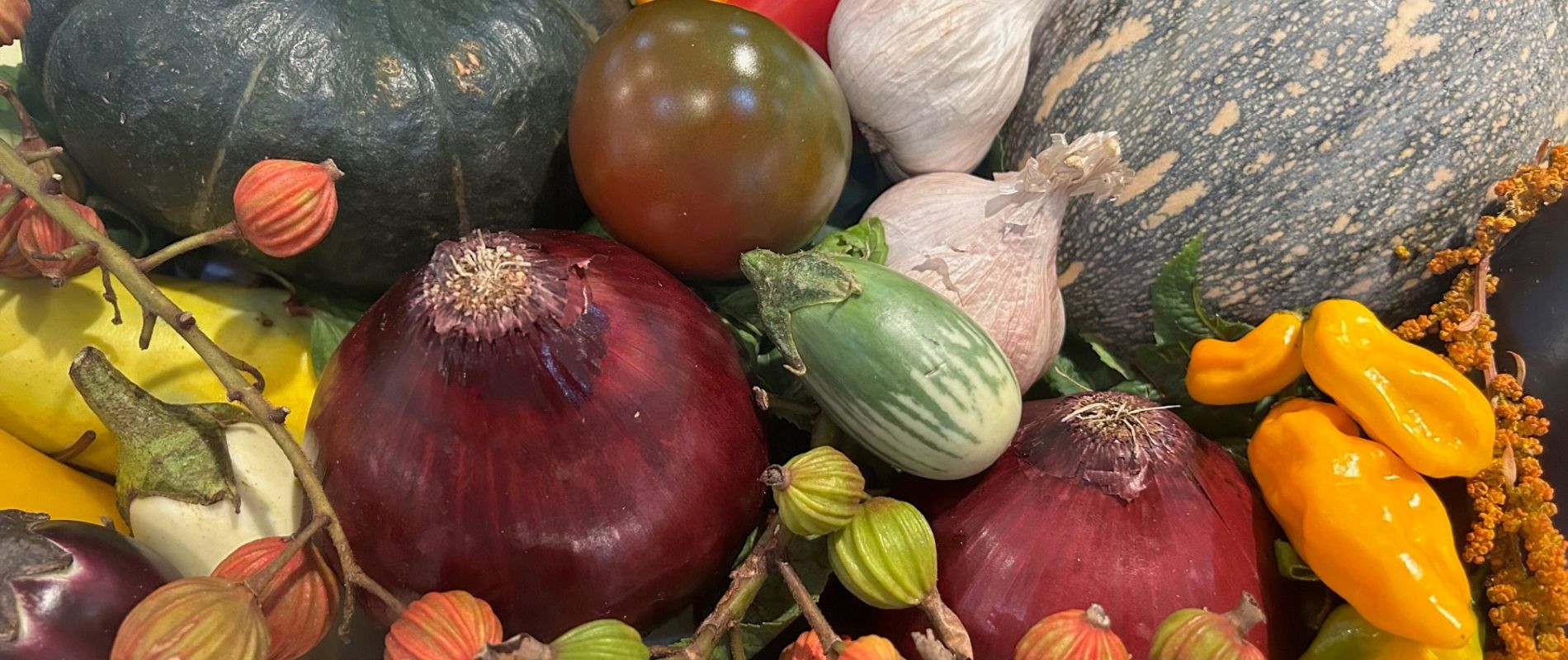This month, I visited the World Vegetable Center (WVC) in Tainan, Taiwan. Celebrating its 50th year, the mission of the WVC is to deliver: “Healthier lives and more resilient livelihoods through greater diversity in what we grow and eat”. In addition to undertaking research to improve breeding of globally-important fruit and vegetables, the WVC is home to the world’s largest vegetable genebank and a service that provides seeds to researchers across the globe. The Center also hosts and trains young researchers from around the world, with the WVC campus providing world-class, newly-built labs and accommodation for visiting students, postdocs and tenured academics. It is an impressive place.
A key aspect of the WVC is its role in promoting research that targets improvements in the climate resilience of vegetable production. To mark their 50th anniversary, in the last week of September, they hosted PhenoVeg 2023 – an international plant phenotyping symposium. Dr Roland Schafleitner (Flagship Leader and Head of Molecular Breeding) invited me to give a talk on how research at the ANU Division of Plant Sciences and ANU node of the Australian Plant Phenomics Facility is enabling high-throughput quantification of leaf traits crucial to the acceleration of crop breeding. In my talk, I focused on how hyperspectral reflectance can be used to quantify variation in key traits such as leaf photosynthesis and respiration, and how such work can help breeders improve the productivity and climate resilience of globally-significant crops.
The visit to the WVC was an ideal opportunity for me to learn about challenges and opportunities in the vegetable sector. On the opportunity side, I was pleased to see several examples of how development of high throughput phenotyping tools (e.g. using the Phenospex Smart Plant Analysis system) were enabling researchers and breeders to more quickly and accurately screen for genetic variation in traits key to ensuring climate resilience of vegetables. As for challenges, one of the key topics was heat stress and how it influences production, particularly in hot humid environments. In recent decades, vegetable breeders at WVC have targeted heat tolerance traits as a means of extending the growing season cooler months (current core production period when vegetable prices are low) to the hotter months (when production is lower and vegetable prices are higher). Their experience could be vital in helping direct R&D targeting heat stress tolerance in other crops, such as cereals.
While in Taiwan, I also visited the Tainan campus of the Academia Sinica Agricultural Biotechnology Research Center (AS). The AS is fully and well-funded by the Taiwan Government, with the Center having excellent plant growth and phenotyping facilities (including glasshouses equipped with state-of-the-art phenotyping systems that continuously monitor canopy growth of vegetable crops. I spent my day at the AS talking to staff about their research, and giving a talk that focused on the impacts of heat waves on plant growth. My thanks to Dr Yao-Cheng Lin and his fellow researchers at AS for hosting my visit.
One of the supporters of WVC R&D is the Australian Centre for International Agricultural Research (ACIAR). In turn, ACIAR is an important partner of the Crawford Fund, who ran their annual conference in September. One of the highlights of the conference was a speech by Dr Cary Fowler, US Envoy for Food Security in which he highlighted the need for long-term, mission-style agricultural R&D targeting complex agricultural challenges. The day after the conference, CEAT was proud to host Dr Fowler at ANU to meet a range of researchers. At that meeting, we discussed with Dr Fowler the ANU, UA, UQ and UWA proposal for a $500m National Initiative for Crop and Community Resilience, and how such investments were going to be vital if we are to create the urgently needed step change in agricultural productivity.
Finally, if you have a business with an agri-food focus that would benefit from unique access to ANU researchers and infrastructure to support your R&D and growth, please get in touch with the CEAT team at [email protected]. We also welcome interest from businesses headquartered outside Australia with an interest in being based at ANU, in our nation’s capital.
Cheers,
Owen
